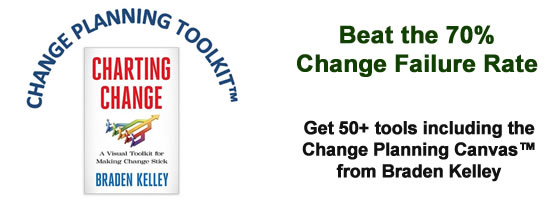How to Get Better at Dealing with Change

We live in an age where we see accelerating change all around us. Large, extremely successful businesses go bankrupt in a matter of years, if not quarters; companies with billion dollar evaluations are born in the matter of years; as consumers, there is something new that is becoming a rage almost every week.
Change is all around us. Whether we like it or not, we will have to deal with change – in our personal lives as well as in our professional lives.
The question then is the following:
Do we embrace change and benefit from it or resist change and remain stuck in a world that no longer exists?
Change in personal lives:
The speed at which things change in our personal lives is also unprecedented. There are new tools, products and services that are launched with the promise of redefining our lives. Some of them do and some of them don’t.
Having a sense of our true north:
When you are navigating change all around you, you need a map to help you navigate the change. If you don’t have a map, you at least need a compass, which can help you know where is the true north and thereby help you navigate the unknown territory. Today, it has become a lot more important and critical for each one of us to know what is our true north. What is most important and dear to us.
What are the musts (non-negotiables), shoulds (you would love to have/do if possible), could’s (non-critical but nice to have/do) and Won’ts (actively avoid) in your lives?
This clarity will help you identify changes, innovations and new opportunities that you can benefit from and also the changes, innovations and opportunities that you need to avoid.
Personal productivity:
Once you have defined your true north, actively look for opportunities that can help you make your life more productive and enjoyable.
Time is the only variable or asset that is non-renewable and depleting. So, block some time on your calendar to explore new innovations that will help you eliminate/automate activities from your life so that you get more time to do what is most important to you.
This approach will help you not only actively look for change in your life but also make it much more productive and a happier life.
Remember Rule No – 6:
In their book – The Art of Possibility, Rosamund Zanders and Benjamin Zanders share the story of a diplomat. The story goes like something this:
Two ministers were sitting together discussion matters of national importance, when one of the secretaries of the minister who was hosting the meeting came rushing in, all flustered and totally animated. The minister then tells her – remember rule no. 6. The moment she hears this, she totally transforms and becomes calm and walks out of the room.
A little later in the meeting, another assistant of the minister walks in hurriedly and tries to whisper something in the ears of the minister. The minister again tells his assistant – Remember rule no. 6 and he also calms down and bows and walks out of the meeting.
The visiting minister was now curious. He asks the host – if I may ask, what is rule no. 6?
The host replies – Never take yourself so god-damn seriously.
The visiting minister then asks – what if i may ask are the other rules?
The host replies – there are none.
The point is that in our day-to-day lives, we end up taking every little thing seriously. This is what leads to a lot of stress. Once we decide not to take ourselves so seriously, we start to slow down and that enables us to develop a longer term perspective and find some humour in all kinds of situations. This takes all the stress about impending change away, as fear and humour cant be room-mates.
Change in Professional Lives:
The pace at which organisational change their business models, their go-to-market strategies, their product mix, their org structures is unprecedented. In this scenario, there are a few things that you can do to not just embrace this change but also thrive in it:
Understand the reasoning behind the change:
The biggest reason why we fear change is because we don’t know what it will bring with it. As they say,
The fear of something is always worse than the actual thing.
The biggest reason why we resist change is because, forced change makes us feel out-of-control. We don’t like being out-of-control.
Once we understand the reason behind the change, we can feel a sense of control back. Also, once we understand the rationale, we can also understand what the change is driving us towards. Once we know the end-game, we can understand what is in store for us in the new reality.
We then need to use something that is innately a human trait – imagination.
We need to imagine the new reality and what would it look and feel like.
- What would it take for someone to be successful in that reality?
- Will our skill-sets be an asset in that reality or will they become liability?
- If they are an asset, how can we build on that and showcase it to the right people (who would these right people be?)
- If they become liability, what will need to be done now, so that we can change that and develop skills to become an asset instead?
- What new opportunities and threats will the new reality bring with it?
- How can we use these to become a more valuable contributor to the team and the organisation?
Once we have thought through these, the fear of change will reduce and will be replaced by an optimism for the new reality, as you will know what the new reality will look and feel like. Once you already know how you will succeed in that new reality, so there is nothing to fear about.
Stay away from gossips:
The biggest culprit of spreading fear of change is gossips in the organisation. Gossips happen when there is not enough communication from the leaders of the organisation about the reason for the change and the vision for the new reality.
If that is the case, then it is best to stay away from gossips. While it will be very tempting to participate in the gossips, it is extremely counter-productive as these gossips will only increase your anxiety and thereafter your fear for what the future holds. We already know that the fear of something is much worse than the thing itself.
So, lets do ourselves a favour and stay away from gossips.
Be a Corporate Adventurer:
The way we see ourselves makes a big differnce in how we deal with change coming our way. If we define ourselves as a corporate adventurer, who is out there in the wild to do new stuff, explore new territories, learn new things, meet new people and have fun along the way, then every change that is thrown at us becomes yet another adventure to go on.
Instead of becoming fearful of the change, we start looking at the new places this change will take us to, what kind of new people will we meet on the ride and what fun will we have all along.
Instead of feeling out-of-control, you will long for new change initiatives to be launched, so that you can go on your next adventure.
Attitude to change matters more than anything else. Lets invent one that suits us.
Find some humour in the situation:
Finally, it is important for each one of us to find some humour in our professional lives as well. Most of us have forgotten to have fun at work. Play or fun seems to be delegated to when we have leisure time.
In my experience, I have found that leaving fun or play to leisure time is a big mistake and one that we are all guilty of doing. Have some fun at work. Play. Find some humour in the little things in the office.
Conclusion:
There is an inherently human trait that each one of us have – We see what we seek.
So, if we seek anxiety, we will find it all around us;
if we seek fear, we will find it all around us;
if we seek negativity, we will find it all around us;
This also means that
if we seek positivity, we will find it all around us;
if we seek opportunity, we will find it all around us;
if we seek fun, we will find it all around us;
if we seek adventure, we will find it all around us;
if we seek meaning, we will find it all around us.
So, instead of focusing on all the inherently negative emotions, lets start looking for all the positive things in our lives and in the changes that are forced on us and have one hell of a ride with it.
This post was originally published by Mukesh Gupta on Musings of a Salesman and has been re-published with permission.
Wait! Before you go…
Choose how you want the latest innovation content delivered to you:
- Daily — RSS Feed — Email — Twitter — Facebook — Linkedin Today
- Weekly — Email Newsletter — Free Magazine — Linkedin Group
 Mukesh Gupta is Director of Customer Advocacy, SAP India Private Limited. He also served as Executive Liaison for the SAP User group in India, and as a Global Lead in Sales & Business Development. He also blogs, and shares podcasts and videos, on his site rmukeshgupta.com
Mukesh Gupta is Director of Customer Advocacy, SAP India Private Limited. He also served as Executive Liaison for the SAP User group in India, and as a Global Lead in Sales & Business Development. He also blogs, and shares podcasts and videos, on his site rmukeshgupta.com
NEVER MISS ANOTHER NEWSLETTER!
LATEST BLOGS
Four ways you can ensure employees take accountability for their work
One of the most important driving factors for any successful business is a high-performing team. Having people working for you…
Read MoreWhat is digital upskilling and why is it important?
Photo by Annie Spratt on Unsplash In a world of business that never stands…
Read More


